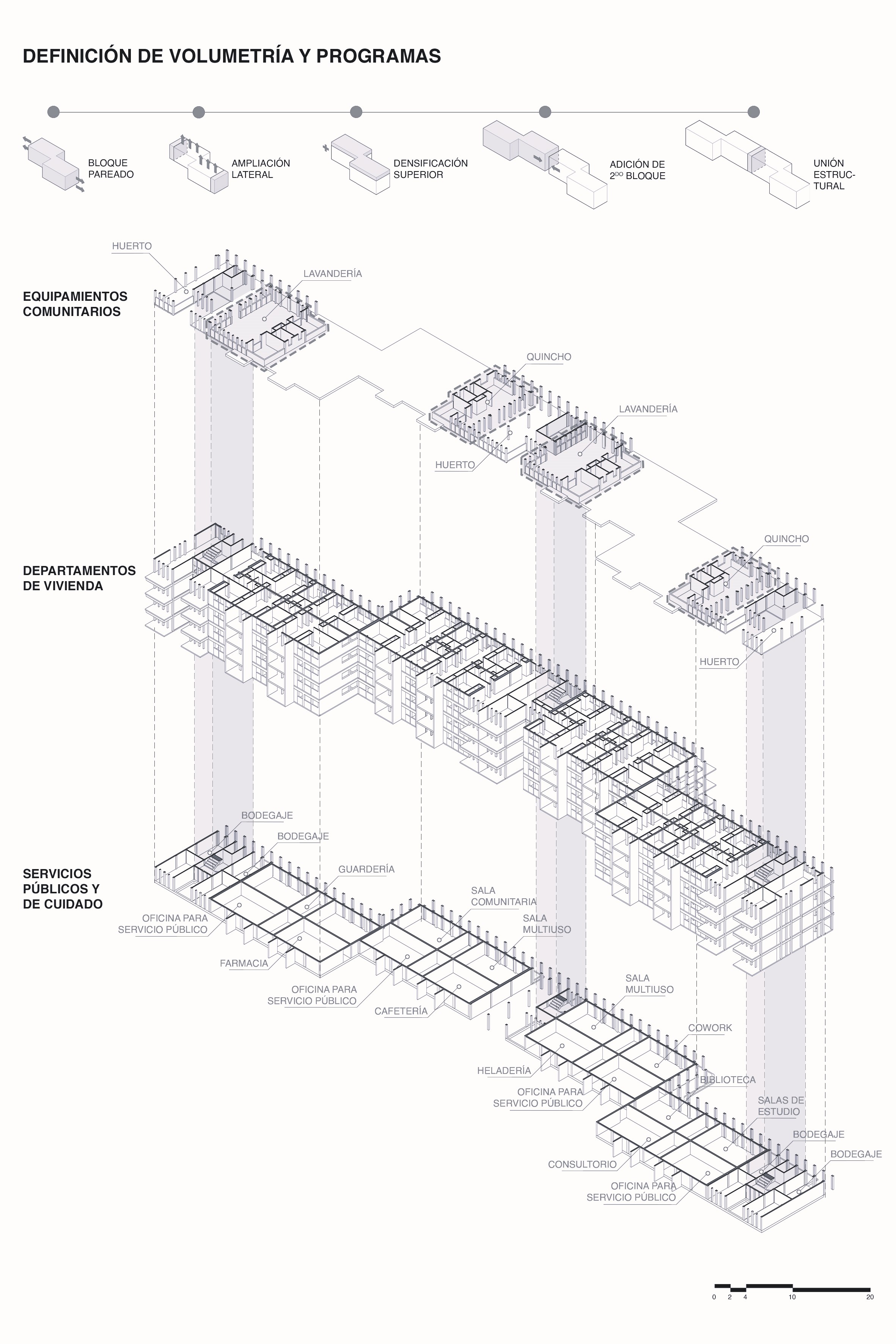Gender Perspective as a Designing Tool in Neighborhood Rehabilitation. The case of the Jaime Eyzaguirre CORVI Complex.
Main Article Content
Abstract
In response to the challenge of Chilean housing policy to address the qualitative housing deficit, the rehabilitation of housing complexes emerges as a viable solution to the material problems of existing dwellings. CORVI complexes built with typologies 1010 and 1020 are candidates for potential rehabilitation due to their positive technical, urban, and spatial qualities. Additionally, the role of women in care and domestic work is considered a starting point for developing a model for rehabilitating high-rise collective housing, with the CORVI Jaime Eyzaguirre housing complex in the Macul district serving as a case study. By applying a qualitative data analysis methodology, this intervention project proposes incorporating women's experiences early on, allowing the project to address historically overlooked considerations such as domestic tasks and the roles assumed by women in households. This results in a multiscalar intervention that includes the design of collective facilities and interior spaces, aiming to positively impact these roles and support women's integration into the labor market.
Downloads
Article Details

This work is licensed under a Creative Commons Attribution-NonCommercial-NoDerivatives 4.0 International License.

